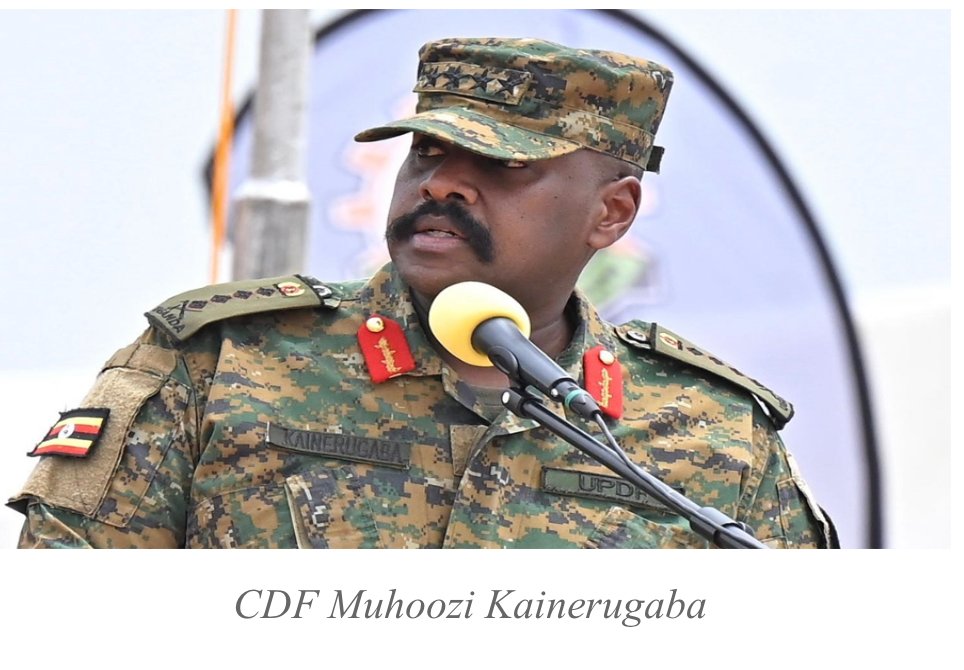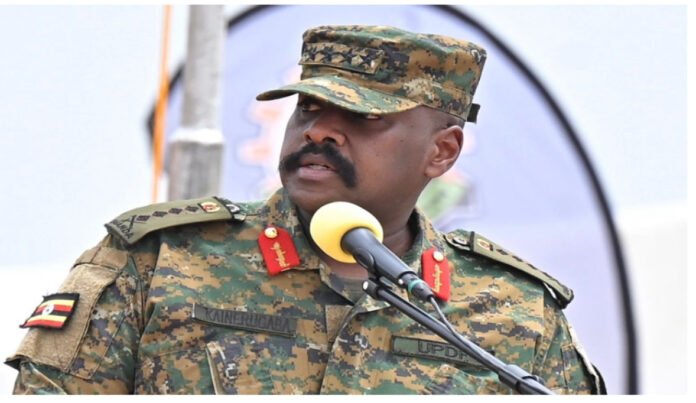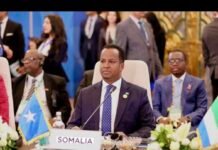
Source: Nile Post
The Chief of Defence Forces, General Muhoozi Kainerugaba, has suggested that Uganda may consider a full withdrawal from Somalia, citing alleged secret negotiations between the United States and the militant group Al-Shabaab.

The claim, which remains unverified, is likely to stir debate about the future of Uganda’s role in the African Union peacekeeping mission and broader questions about shifting security alignments in the restive Horn of Africa.
The statement, shared on social media by Muhoozi’s military assistant Colonel Chris Magezi, quoted the CDF as saying that the US and the broader Western bloc appear to be recognising Al-Qaeda-linked elements in Syria, and possibly Al-Shabaab in Somalia.
He added that even Israel, Uganda’s close security partner, seems unbothered by these developments.
“We even hear that the US has begun secret negotiations with Al Shabaab in Somalia,” the message read, concluding with a call to “implore our great Commander-in-Chief to consider total withdrawal from Somalia after 18 years.”
Uganda has maintained a military presence in Somalia since 2007 under the African Union peacekeeping mandate, first through AMISOM and now its successor, ATMIS.
UPDF troops have played a crucial role in stabilising Mogadishu and holding off insurgent advances, often at great human and financial cost.
However, this commitment has increasingly come under scrutiny at home, especially following deadly attacks on Ugandan positions by Al-Shabaab, including the May 2023 assault on the UPDF base in Bulo Marer, where dozens of soldiers were killed.
Despite the weight of Muhoozi’s comments, there is no publicly available evidence supporting claims that the United States is engaged in direct negotiations with Al-Shabaab.
The group remains designated as a terrorist organisation by the US government, and American policy has consistently favoured military strikes, intelligence operations, and support to Somali federal forces rather than dialogue with the militant group.
Security analysts have urged caution in interpreting the CDF’s remarks. Some suggest they may reflect frustration over perceived duplicity among international partners or be a signal of Uganda’s growing impatience with a drawn-out mission that has failed to deliver a clear political solution in Somalia.
Others view the statement as an early attempt to shape policy discourse in the wake of ATMIS’s mandated drawdown, which was scheduled to conclude by December 2024.
With that deadline now passed and uncertainty lingering over Somalia’s ability to manage security independently, Gen Muhoozi’s remarks could reflect growing dissatisfaction with the post-ATMIS transition and the role Uganda is expected to play going forward.
At another level, it could be a textbook message. In the past, Muhoozi’s father President Museveni has sent veiled threats of withdrawal whenever Washington’s support was dwindling.
This almost always resulted in more funding for the Mission.
The public tone of Gen Muhoozi’s remarks is also seen by observers as part of a broader recalibration of Uganda’s foreign military deployments.
Uganda remains heavily engaged in the DR Congo and has historically taken on a leadership role in regional peace and security operations.
However, rising domestic security demands and economic pressure are pushing policymakers to reassess external commitments.
Uganda’s participation in Somalia has long been framed as a contribution to regional stability, as well as a demonstration of loyalty to international partners, particularly the US.
Any suggestion of withdrawal, especially if framed around distrust in those very partners, could mark a significant shift in Uganda’s foreign policy posture.
While Muhoozi’s statement has not been backed by official government communication, its publication by his office suggests that it is intended to provoke public and policy-level discussion.
For now, Uganda remains a key contributor to ATMIS. But with rising uncertainty over Somalia’s stability, and regional power dynamics increasingly in flux, Gen Muhoozi’s words may mark the beginning of a more assertive, inward-looking military policy in Kampala.





